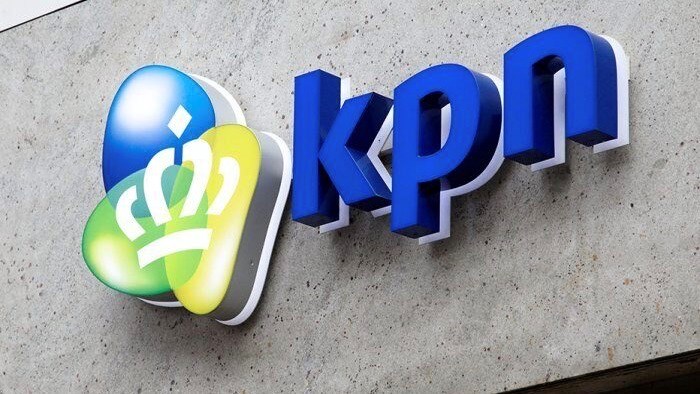
- Dutch incumbent has been investing heavily in its fibre access network
- It now passes more than 3.2 million Dutch premises
- Its FTTP activation rate is higher than 50%
- But it’s not the only one ploughing billions into fibre in The Netherlands
- In the meantime, KPN is aiming to keep unwelcome suitors at bay
As part of its full year 2021 financial report, Dutch national operator KPN revealed an incredibly impressive fibre-to-the-home uptake rate across The Netherlands: The operator has now passed just over 3.2 million Dutch homes with its own fibre access network and has signed up 1.64 million customers to the service for a FTTH activation rate of about 51% (though it should be noted that many of these are existing customers that have switched from a copper connection to fibre).
No matter the circumstances, that’s a fantastic uptake rate, one that suggests very strongly that the strategy is on the money and also one that compares favourably to other European operators that are also proud of their fibre broadband rollout and uptake rates: Orange, for example, recently announced it now has 6 million FTTP customers in France, a highly-competitive market, which gives it an activation rate of about 33% (based on 18 million premises passed), also a figure of which to be proud.
KPN isn’t trying to do everything by itself, either: It also reaches FTTH customers via third party wholesale networks and through Glaspoort, KPN’s joint venture with investment firm APG, which plans to invest more than €1 billion during the next five years, aiming to reach about 1.15 million households and businesses in harder-to-reach areas with fibre connections. (The number of premises targeted was increased in early December 2021 by 170,000 from the previous target of 975,000 premises.)
With its own rollout and Glaspoort’s deployment, KPN aims to pass 80% of premises (about 6.5 million) in The Netherlands by 2026.
The operator’s tactic of accelerating its fibre rollout – it passed 433,000 premises with fibre in 2021 alone and invested €407 million, a third of its total capex budget for the year, on its fibre access network rollout – and maximizing its FTTH coverage as soon as possible appears to be paying off in terms of reduced churn and operating costs, and will surely give it the best possible opportunities for profitable survival in the future.
Here’s what the operator had to say in its 2021 financial review, which also includes some interesting insights into its 5G strategy: “KPN continues to leverage and expand its superior network as it sees attractive returns from fiber investments with increased network penetration, more loyal customers with an increased willingness to pay for quality, and lower maintenance costs. KPN has accelerated its fiber rollout and now targets fiber coverage of approximately 80% of Dutch households by the end of 2026, together with Glaspoort. In 2021, KPN’s own fiber rollout reached new record levels with 433k homes passed. Jointly with Glaspoort (+74k) 507k households were connected with fiber in 2021. KPN’s 5G strategy is focused on differentiated services for B2B customers in specific industries. KPN’s field labs are continuously exploring the added value of 5G benefits such as higher speeds, lower latency and network slicing together with its business customers.”
Of course, KPN isn’t alone in trying to get its foot in the fibre door first with Dutch citizens and businesses.
DELTA Fiber has raised €2 billion to build out very high speed fibre broadband connections (10 Gbit/s using XGS-PON technology) to 2 million premises by 2025. Interestingly, one of DELTA’s investors is EQT, which has tried on several occasions to acquire KPN. (See Ambitious EQT takes another run at KPN: Report.)
Deutsche Telekom’s T-Mobile Netherlands is also investing in Dutch FTTH through its own relatively limited efforts currently and through Open Dutch Fiber, a joint venture between investment firm KKR and DTCP (Deutsche Telekom Capital Partners) that plans to invest €700 million in a wholesale, open access broadband network that will pass 1 million premises and which will have T-Mobile Netherlands as its anchor tenant.
So, what of KPN’s financials? In 2021, the incumbent telco generated revenues of €5.256 billion, almost exactly the same as last year, while operating profit (earnings before interest and tax) doubled to €1.86 billion. And to keep investors sweet, and help them reject any future unwelcome takeover offers, KPN is even rewarding its shareholders with dividends and buybacks that will total €850 million this year (while still maintaining its high levels of FTTP and 5G investment). For all the details on KPN’s finances, see this Q4 and full year report.
KPN’s share price currently stands at 2.89, up 4.6% this calendar year and up by 11% compared with a year ago.
- Ray Le Maistre, Editorial Director, TelecomTV
Email Newsletters
Sign up to receive TelecomTV's top news and videos, plus exclusive subscriber-only content direct to your inbox.




